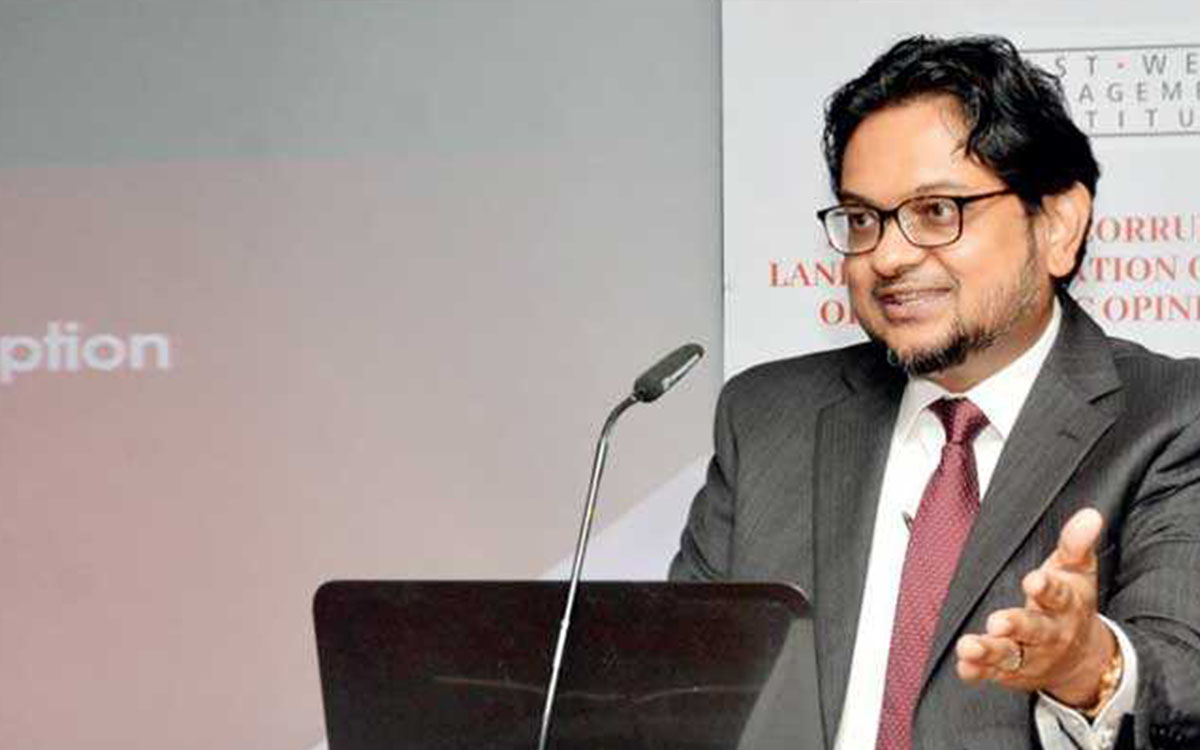Published in EconomyNext
ECONOMYNEXT – Sri Lanka should come up with a credible economic program of its own and go the International Monetary Fund instead of allowing the agency to device the plan, Nishan de Mel, head of Verete Research, a Colombo-based think tank said.
When a business goes to bank to get debt restructure, he said the company write the business plan and convinces the credit officer that the plan is good.
“You do not get the credit officer to write the plan and then complain my goodness that plan does not work for me,” de Mel told a business forum organized by Sri Lanka’s Ceylon Chamber of Commerce.
“We do not wait of the IMF to give us a plan. The mistake that poor countries make of not using their best economists is that they let the IMF draft the plan. Then that turns out to be impractical because they haven’t thought about the realities of the country.
“Sri Lanka needs a credible plan to get out. Then tell the IMF show us why this plan is no good. We must negotiate with the IMF as professional, equals, not as third class, citizens or a third class country.
“I think if we can do that we can get the IMF to support the best plan that Sri Lanka can put forward.”
He said Sri Lanka’s budget for 2022 needed to be tightened to have a 3.0 percent primary deficit.
The budget planned an overall deficit of 8.8 percent of gross domestic product, with 9.8 percent to be funded domestically, and a primary deficit of 2.8 percent.
There are concerns that a steep revenue gain from 1,556 billion rupees expected in 2021 to 2,274 billion rupees, was too ambitious, with consequences on overall numbers. However a capital budget of 916 billion rupees, up from 570 billion rupees may also be ambitious.
In soft-pegged countries that get into external deficits however, there is by definition lack of knowledge about maintaining monetary stability, which is why they get into trouble in the first place.
However in a 2009 IMF program, a monetary program model with reserve money as the nominal anchor, which was already in operation under the direction of then Deputy Governor W A Wijewardene was also continued by the Fund.
Sri Lanka is in fiscal and monetary trouble after cutting taxes in 2019 for monetary stimulus and printing large volumes of money to target call money rate, ratcheting up discretionary monetary policy followed from 2015 that had already busted the currency.
Sri Lanka’s gross official reserves fell to 2.3 billion US dollars in October and the central bank’s reserves are now negative by 1.2 billion US dollars, largely due to funds owed to the IMF on a previous program, an SDR allocation (which de facto almost perpetual).
